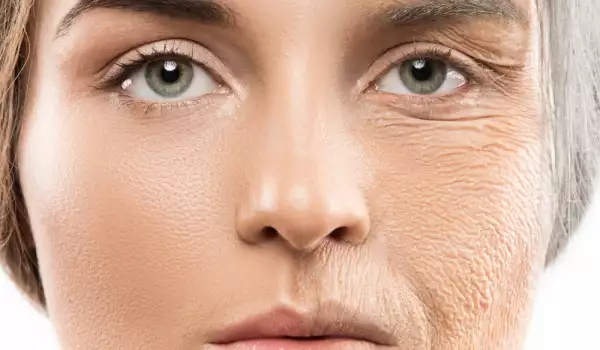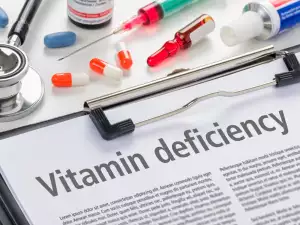Vitamin C is an essential nutrient that must be consumed regularly to prevent deficiency. While vitamin C deficiency is relatively rare in developed countries due to the availability of fresh produce and the addition of vitamin C in certain foods and supplements, this problem still affects approximately 7% of the adults in the US.
The most common risk factors for vitamin C deficiency are poor diet, alcoholism, anorexia, severe mental illness, smoking, and dialysis.
Here are the 15 most common signs and symptoms of vitamin C deficiency.
Rough skin
Vitamin C deficiency can cause the formation of acne on the arms, thighs or buttocks.
Curled ends on the hair

Vitamin C deficiency can also cause hair abnormalities - curled ends of the hair, but it is difficult to detect because these hairs fall out without us noticing.
Clear red skin follicles
Hair follicles contain very small blood vessels that can become damaged due to vitamin C deficiency, causing bright red spots to appear around the follicles.
White spots on nails
Vitamin C deficiency is also associated with nails - a change in their shape or the appearance of white spots on them.
Dry and damaged skin

Healthy skin contains large amounts of vitamin C, especially in the epidermis, or outer layer of the skin. Vitamin C keeps the skin healthy by protecting it from oxidative damage caused by the sun and exposure to pollutants such as cigarette smoke or ozone.
Easy bruising
Easy bruising is a common sign of vitamin C deficiency because poor collagen production causes weak blood vessels.
Slow wound healing
Because vitamin C deficiency slows the rate of collagen formation, it causes wounds to heal more slowly.
Painful and swollen joints

Since joints contain a lot of collagen-rich connective tissues, they can also be affected by vitamin C deficiency.
Weak bones
Vitamin C deficiency can also affect bone health. In fact, low intake is associated with an increased risk of fractures and osteoporosis.
Bleeding and tooth loss
Red, swollen, bleeding gums are another common sign of vitamin C deficiency.
Weak immune system
Studies show that vitamin C accumulates in various types of immune cells to help them fight infections and destroy pathogens that cause illnesses.
Anemia

Vitamin C and iron deficiency anemia often occur together.
Fatigue and bad mood
Two of the earliest signs of vitamin C deficiency are fatigue and bad mood.
Unexplained weight gain
Vitamin C can help prevent obesity by regulating the release of fat from fat cells, reducing stress hormones and reducing inflammation.
Chronic inflammation and oxidative stress
Vitamin C is one of the most important water-soluble antioxidants. It helps prevent cell damage by neutralizing free radicals that can cause oxidative stress and inflammation in the body.




















Comments